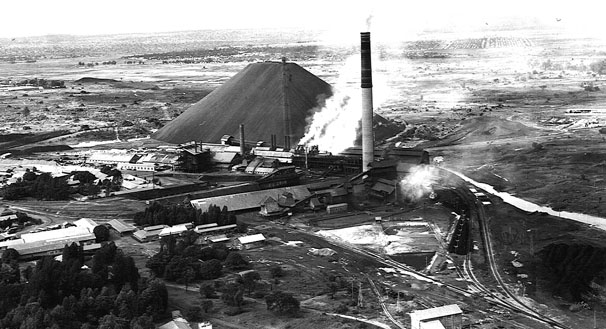Gécamines
Gécamines (short for La Générale des Carrières et des Mines) is a state-owned Zairian mining company that provides the bulk of the nation's exports earnings (at least 50%). Its principal products are copper (the primary export), cobalt, and zinc, although additional minerals, including uranium, are mined as well. The company was once Union Minière du Haut Katanga, a company that came into existence on October 28, 1906, as a result of a merger between a company owned by Belgium's King Léopold II and Tanganyika Concessions, Ltd. (a British firm). The immensely profitable company provided huge revenues for Belgium, and by the 1950s, the Belgian Congo, as Zaire was then known, was the world's fourth largest producer of copper. Interestingly enough, the uranium the U.S. used for the Manhattan Project (which made the a-bombs dropped on Hiroshima and Nagasaki at the end of the Second World War) was supplied by Union Minière du Haut Katanga. The country remained in Belgian hands until December 31, 1966, when strongman Joseph-Désiré Mobutu (later christened Mobutu Sese Seko) nationalized the company and renamed it La Générale des Carrières et des Mines (Gécamines). During the boom years of the late-60s/early 70s, when the economy's annual growth rate was an impressive 7%, the company prospered greatly. However, as the years went on, massive looting and governmental corruption took their toll, reducing the once prosperous company to a wreck. By the late 80s/early 90s, the company had been plundered almost to a stand-still, as can be gleaned from the following figures:
- 1989: 440,848 of copper, 54,043 tons of zinc
- 1990: 376,000 tons of copper
- 1991: 240,000 tons of copper, 30,000 tons of zinc, 9,800 tons of cobalt
- 1994: 32,412 tons of copper, 2,515 tons of zinc, 3,631 tons of cobalt
Although, the company has begun a slow recovery since then (perhaps thanks to the prime minister's austerity program), it continues to face significant economic difficulties.

